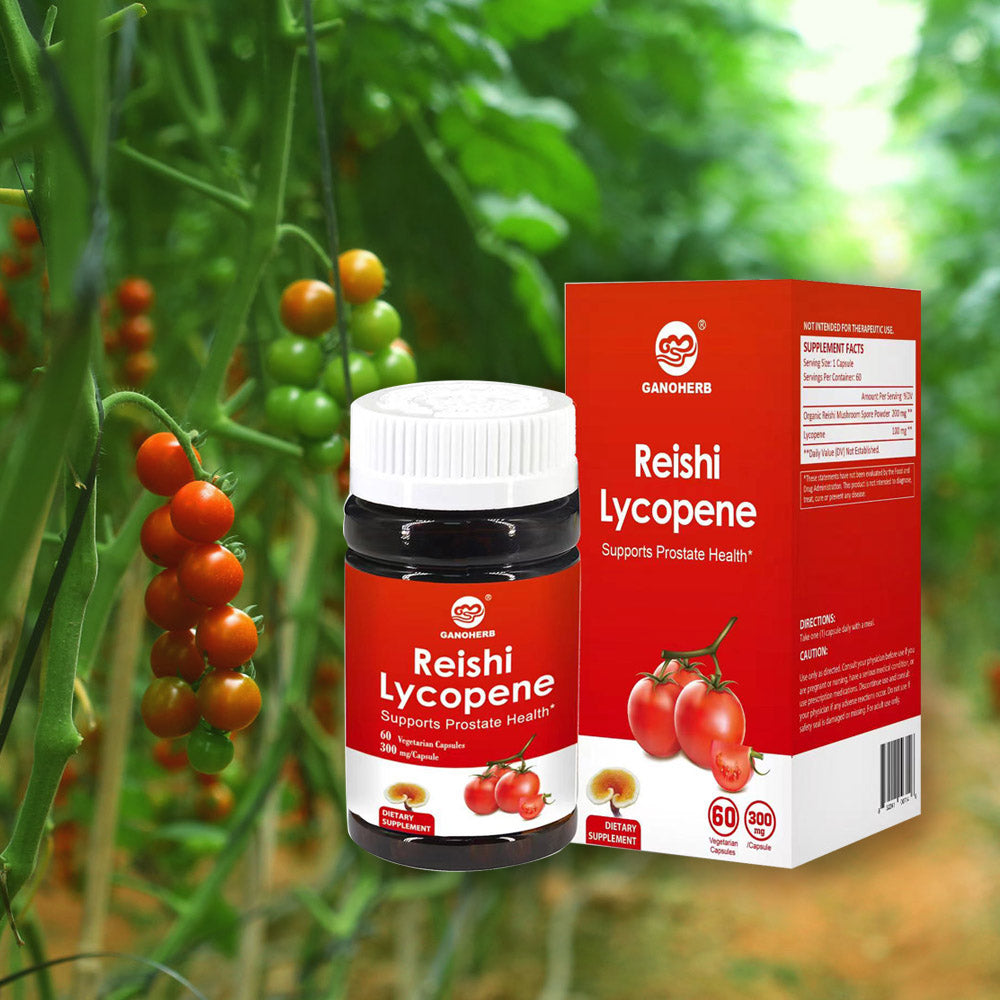Mushroom Coffee Supplement: Uncovering Its Unique Appeal and Everyday Use
Have you ever stumbled upon the term mushroom coffee supplement and wondered what the buzz is all about? In recent years, this intriguing blend has captured the attention of many, weaving its way into daily routines without the fanfare of traditional health claims. Unlike your average cup of joe, mushroom coffee supplement combines familiar coffee elements with mushroom-derived components, creating a beverage that stands out for its distinctive characteristics. Whether you're a curious newcomer or someone looking to diversify your pantry, this guide dives deep into the world of mushroom coffee supplement, exploring its essence, origins, production, sensory qualities, and cultural traction. Let's unravel the story behind this unique addition to modern lifestyles, focusing on what makes it a topic of conversation in kitchens and cafes alike.

What is Mushroom Coffee Supplement?
Mushroom coffee supplement is a blend that typically includes coffee beans and extracts from various mushrooms, such as chaga, lion's mane, or reishi, though it's important to note that these are not the common culinary mushrooms found in grocery stores. Instead, they are often sourced from specialized fungi known for their historical use in certain traditions. The supplement form is designed to be mixed with hot water or added to other beverages, offering an alternative to plain coffee. It doesn't replace coffee entirely but adds a layer of complexity to the drinking experience. The composition usually involves dried mushroom powders or extracts that are carefully processed to blend seamlessly with coffee grounds. This combination results in a product that maintains the rich, robust profile of coffee while introducing subtle earthy notes from the mushroom components. People might choose mushroom coffee supplement for its unique flavor profile or as a way to incorporate mushroom-based ingredients into their diet without the need for separate preparations. It's commonly available in instant packets, ground blends, or capsules, making it accessible for home use or on-the-go lifestyles. Understanding what mushroom coffee supplement entails helps demystify its role in today's beverage landscape, highlighting its functional aspects rather than any purported benefits.
The Historical Background of Mushroom Coffee Supplement
The roots of mushroom coffee supplement trace back to ancient practices where mushrooms were valued in various cultural rituals and daily life, though not specifically in coffee form. In regions like East Asia and parts of Europe, mushrooms have been part of traditional concoctions for centuries, often prepared as teas or broths. The integration into coffee is a more recent development, emerging over the past few decades as global interest in functional foods grew. Initially, it gained traction in niche communities that appreciated the blend of familiar coffee with mushroom elements, drawing on historical uses of mushrooms in supportive roles within diets. The evolution of mushroom coffee supplement was influenced by advancements in food technology, which allowed for the extraction and drying processes that make the supplement stable and easy to mix. As trade and cultural exchange expanded, this blend found its way into Western markets, where it was embraced by those seeking variety in their beverage choices. The historical journey of mushroom coffee supplement isn't about mythical tales or ancient remedies but rather a story of adaptation and innovation. It reflects how traditional ingredients can be reinterpreted in modern contexts, leading to products that resonate with contemporary consumers. Today, mushroom coffee supplement continues to evolve, with new varieties and formulations appearing regularly, building on this rich historical tapestry without relying on exaggerated claims.
The Production Process of Mushroom Coffee Supplement
Creating mushroom coffee supplement involves a meticulous process that starts with sourcing high-quality mushrooms and coffee beans. The mushrooms used are typically harvested from controlled environments, such as farms or wildcrafted areas, where they are cleaned and sorted to ensure purity. Once collected, they undergo extraction methods like hot water or alcohol extraction to isolate the desired components, which are then concentrated into powders or liquids. This step is crucial for achieving a consistent blend that can mix well with coffee. Meanwhile, coffee beans are roasted to specific profiles to complement the mushroom elements, often opting for medium roasts to balance acidity and bitterness. The two components—mushroom extract and coffee—are then combined in precise ratios, often using industrial mixers to ensure even distribution. Additional steps might include grinding the mixture to a fine powder for instant versions or packaging it as whole beans for those who prefer grinding at home. Quality control checks are performed throughout to maintain flavor integrity and shelf stability, with many producers emphasizing transparency in sourcing and processing. The final product of mushroom coffee supplement is packaged in airtight containers to preserve freshness, ready for consumers to enjoy. This production journey highlights the careful craftsmanship behind mushroom coffee supplement, making it a reliable choice for those interested in the technical aspects of their beverages.
Sensory Experience of Mushroom Coffee Supplement
When it comes to the sensory appeal of mushroom coffee supplement, the focus is on its unique taste, aroma, and mouthfeel. Upon brewing, it often emits a rich, earthy scent that combines the familiar coffee fragrance with subtle, woody notes from the mushroom components. The flavor profile tends to be smoother and less acidic than traditional coffee, with a balanced bitterness that doesn't overpower the palate. Many users describe it as having a deep, umami-like quality that adds depth to each sip, making it a pleasant alternative for those who find regular coffee too harsh. The texture is typically similar to standard coffee, though some instant versions might have a slightly thicker consistency due to the mushroom powders. In terms of appearance, mushroom coffee supplement usually looks like dark brown coffee grounds or powder, with no significant visual differences that set it apart. The overall drinking experience is designed to be comforting and immersive, appealing to people who enjoy exploring new flavors in their daily routines. Whether consumed black or with additions like milk and sweeteners, mushroom coffee supplement maintains its distinctive character, offering a sensory journey that goes beyond ordinary beverages. This aspect makes it a popular choice for those who value the ritual of coffee drinking and seek variety in their sensory explorations.
Cultural and Market Trends Surrounding Mushroom Coffee Supplement
The rise of mushroom coffee supplement in popular culture is a fascinating phenomenon driven by shifting consumer interests and marketing strategies. In recent years, it has become a staple in wellness-oriented circles, not for any specific claims, but as part of a broader trend toward incorporating natural, plant-based ingredients into everyday life. Social media and food blogs have played a significant role in its visibility, with influencers and enthusiasts sharing their experiences and recipes featuring mushroom coffee supplement. This has helped it gain a foothold in urban centers and among demographics that prioritize novelty and sustainability in their purchases. Market analysts note that the demand for mushroom coffee supplement has grown alongside interest in functional foods, though the emphasis here is on its role as a dietary addition rather than a solution. Retailers have responded by stocking a wider range of options, from organic versions to blends with other botanicals, making it accessible in supermarkets, online stores, and specialty shops. The cultural appeal of mushroom coffee supplement lies in its ability to blend tradition with modernity, offering a connection to historical practices while fitting seamlessly into contemporary lifestyles. As more people experiment with their food and drink choices, mushroom coffee supplement continues to evolve, reflecting broader societal shifts toward mindful consumption and exploration of global ingredients.

Practical Integration of Mushroom Coffee Supplement into Daily Life
Incorporating mushroom coffee supplement into everyday routines is straightforward and adaptable to various preferences. For starters, it can be prepared similarly to regular coffee—using a drip machine, French press, or instant mixing with hot water. Many people enjoy it as a morning beverage, replacing or alternating with their usual coffee to add variety to their diet. The supplement form allows for flexibility; for instance, it can be added to smoothies, baked goods, or even savory dishes to impart its unique flavor profile. When storing mushroom coffee supplement, it's best to keep it in a cool, dry place to maintain its quality over time. Dosage and frequency of use are typically guided by personal taste rather than strict guidelines, with most products providing suggestions on packaging. For those new to mushroom coffee supplement, starting with a small amount and adjusting based on preference is a common approach. It's also compatible with various dietary lifestyles, such as vegan or gluten-free, depending on the specific brand. The practical aspect of mushroom coffee supplement makes it an easy addition to any kitchen, encouraging experimentation and personalization. By integrating it into daily habits, users can explore its role as a versatile ingredient that enhances the overall experience of mealtime and beverage enjoyment.
Frequently Asked Questions About Mushroom Coffee Supplement
Q1: What is the basic composition of mushroom coffee supplement?
A1: Mushroom coffee supplement typically consists of a blend of coffee beans and extracts from specific mushrooms, such as chaga or lion's mane, processed into a powder or ground form for easy mixing with liquids.
Q2: How does the taste of mushroom coffee supplement compare to regular coffee?
A2: The taste of mushroom coffee supplement is often described as smoother and less acidic than regular coffee, with earthy, woody undertones that add complexity without overwhelming the familiar coffee flavor.
Q3: Can mushroom coffee supplement be used in cooking or other recipes?
A3: Yes, mushroom coffee supplement can be incorporated into various recipes, such as smoothies, desserts, or sauces, to introduce its unique flavor profile into dishes beyond beverages.
Q4: Is mushroom coffee supplement suitable for people with dietary restrictions?
A4: Many mushroom coffee supplement products are designed to be compatible with common dietary needs, such as vegan or gluten-free lifestyles, but it's always best to check the label for specific ingredients and certifications.
Q5: How should I store mushroom coffee supplement to maintain its quality?
A5: To preserve the freshness of mushroom coffee supplement, store it in an airtight container in a cool, dry place away from direct sunlight, similar to how you would store regular coffee grounds.
In summary, mushroom coffee supplement offers a distinctive twist on the classic coffee experience, rooted in historical practices and modern innovation. From its definition and production to sensory qualities and cultural trends, this guide has covered key aspects that make it a noteworthy addition to today's beverage options. Whether you're drawn to its unique flavor or curious about its practical uses, mushroom coffee supplement provides an avenue for exploration in daily routines. As you consider trying it, remember that its appeal lies in the journey of discovery, not in overstated promises. Feel free to experiment and find your own way to enjoy what mushroom coffee supplement has to offer.











